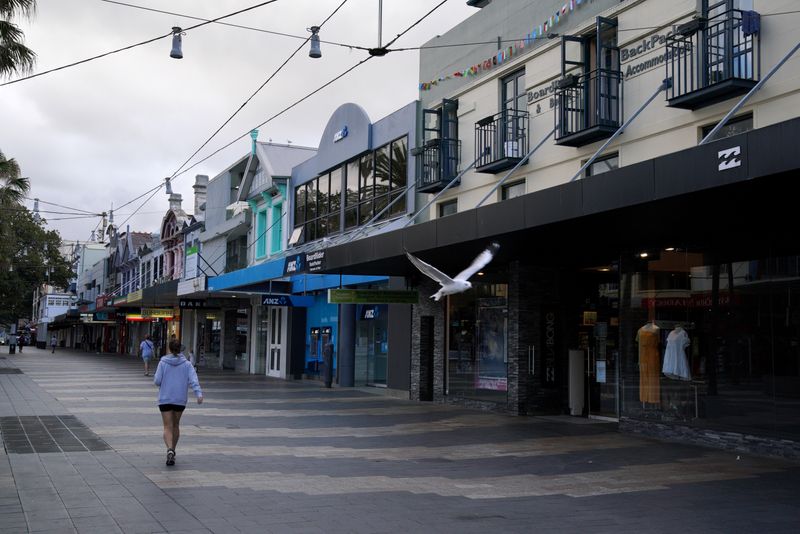SYDNEY (Reuters) - Measures of Australian business and consumer sentiment suffered their steepest falls on record in March as whole sectors of the economy were shut down to stem the coronavirus, likely tipping the country into its first recession in three decades.
National Australia Bank's (AX:NAB) index of business conditions dived to -21 in March, from 0 in February, far below the long-run average of +6.
The survey's measure of business confidence plunged to -66, from -2, the lowest in the history of the series and lower even than the recession of the early 1990s.
"Worryingly, but not surprisingly, business's outlook is the weakest ever," said NAB Group Chief Economist Alan Oster. "Business has essentially told us that trading conditions, profitability and employment all went backwards in a big way in the month.
"We expect a recession of unprecedented speed and magnitude for the Australian economy over the next three quarters. This will see a sharp increase in unemployment."
Measures of sales, profits and employment all dropped sharply, with the jobs index shedding 21 points to stand at -20 in March.
Recreation & personal services saw the largest hit to activity, while forward orders collapsed to their lowest on record and capacity utilisation shrank.
The virus has wreaked havoc on two of the country's most lucrative sectors - tourism and education - with the Reserve Bank of Australia (RBA) warning economic output will suffer a very sharp contraction this quarter.
The central bank has reduced interest rates to an all-time low of 0.25% and launched a major campaign of bond buying to pump liquidity into the financial system.
The Australian government has pledged over A$200 billion in fiscal stimulus, including A$130 billion for an employee subsidy that could help limit job cuts in hard hit sectors.
Treasurer Josh Frydenberg on Tuesday said unemployment was still likely to hit 10% by June, but it might have been as high as 15% without the stimulus.
"While almost everyone expects a fairly rapid bound back in activity once the spread of the coronavirus is contained and social distancing rules are relaxed, the immediate worry for the business sector is the impact on cash flows," said NAB's Oster.

"For now more businesses expect it to get worse before it gets better."